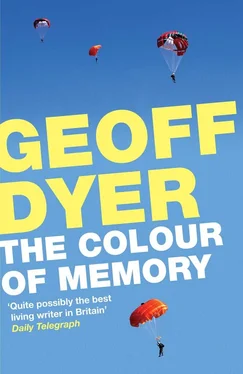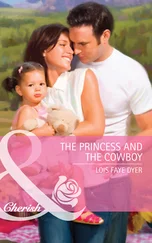As I get off the tube broken glass crunches under my feet: the remains of a wine bottle. A few steps further on there are large curved triangles of green glass in a pool of deep blood. Slumped on a bench is a middle-aged man with blood over his shirt and a gash down one side of his face. An ambulance man bandages him sternly. I am walking behind two rastafarians: together the three of us sprint up the escalator. By the time we get to the ticket barrier, like a photographer whose finger presses the shutter by reflex, I have already drafted these words.
This book is like an album of snaps. In any snap strangers intrude; the prints preserve an intimacy that lasted only for a fraction of a second as someone, unnoticed at the time, strayed unintentionally into the picture frame. Hidden among the familiar, laughing faces of friends are the glimpsed shapes of strangers; and in the distant homes of tourists there you are, at the edge of the frame, slightly out of focus, in the midst of other peoples’ memories. We stray into each other’s lives. In the course of any day in any city it happens thousands of times and every now and again it is caught on film. That is what is happening here. Look closely and maybe there, close to the margin of the page, you will find the hurried glance of your own image: queuing at the bar, hurrying for the bus, drinking beer on a roof, bleeding on the floor of the tube (I wanted to help you but was too frightened; I’m sorry, I really am).
Often what happens accidentally, unintentionally, at the edges or in the margins of pictures — the apparently irrelevant detail — lends the photograph its special meaning. What is happening in the foreground in sharpest focus seems somehow unimportant or meaningless compared with — or at least is leant meaning and importance only through — the accidental intrusion of detail: the glimpse of someone’s shoes; a car in the background; a furled umbrella; the tilt of someone’s hat; the child eating a lolly. These details absorb and transform — and are themselves absorbed and transformed by — the principal action; the main subjects become saturated by the accidental inflections of attendant details. The distinction between foreground and background collapses; the subject is usurped by his surroundings, by the momentary pattern of clouds, by other faces in the street; his shadow is lost in a blur of others — the shadows cast by accidental gestures.
Foomie’s teeth crunched into a huge apple, its skin so dark that the inside, marked by the tracks of her teeth, looked dazzling white.
‘You want a bite?’ she said, holding it out to me. I shook my head.
‘You’re missing a great apple.’
Foomie had a knack for buying nice fruit that I could only regard with astonished admiration. When I bought fruit it was always either over-ripe or under-ripe, never just right.
‘The other day I bought some cherries,’ I said. ‘They were like little sacks of rotten black blood; the day after that I bought some bananas that were so soft you could have chewed them quite comfortably within ten minutes of getting your teeth ripped out without anaesthetic.’
‘Ugh, shut up. You’re making me feel sick. .’
We were on the roof. Foomie was sitting back in one of the deckchairs she’d spent the winter making. She’d bought a whole load of them from seaside resorts, painted the frames black and replaced the canvas with brightly coloured prints of her own design. She had given one to each of her friends and was trying to sell the rest at Portobello market for fifteen pounds each. I leant against the railing and looked at my own deckchair as it lounged contentedly beneath the blue sky.
On the roof of the lift-housing rested the finished sculpture of the woman that someone had worked on throughout last summer. Freed from the block of stone she was propped up on an elbow with her head back, one leg bent at the knee. Though only two or three feet in length, the sculpture was so life-like that it made the roof seem much bigger than it was, as if what we saw was a life-size figure, lounging in the sun some way off.
‘I’ve got some grapes in my bag,’ Foomie said after a while. ‘You want some?’
‘No thanks. For me the pip destroys the pleasure of the grape.’
‘They’re seedless.’
‘Are they?’
‘Not exactly.’
Foomie was wearing a vest, shorts and a battered straw hat that shaded her face. I was wearing shorts too. Looking at Foomie made me feel very white.
‘Am I going brown?’
‘You look like you’ve just stepped out of a microwave. You ought to put some cream on. You’ll burn.’
‘I never get sun burn,’ I boasted.
‘I wish Steranko would hurry up with those beers,’ Foomie said, excavating another crisp apple.
‘Me too.’ Until he’d been persuaded to go to the off-licence Steranko had spent the afternoon painting up on the roof — since the good weather began he’d kept an easel, brushes and paints at my flat — while Foomie and I read or talked or just sat around.
‘Here he is,’ I said, looking over the railing and seeing him walk along the street with a brown bag full of beer.
Steranko had only been back a short time when he reached for his jacket to relight a joint that had gone out. The jacket was lying on the concrete and as he pulled it towards him his keys, resting on the jacket, rolled off and disappeared down the drainage hole which had been lurking there unseen. A few seconds later there was a loud splash from several floors down.
‘Shit!’
The drainage hole was only a little bigger than the plughole of a bath. There was nothing to see as we gathered round and peered down it.
‘Where does that pipe end up?’
‘In about three foot of filthy water underneath the block.’
‘Shit. Is there any way to get at it?’
‘No. But it’s not a problem is it? What about the other people in your house?’
‘They’ve gone to Thailand. They’re not going to be back for three weeks.’
‘Has no one else got a key?’
‘Foo — oh shit you gave them back to me the other day didn’t you?’
‘Can you get in somehow?’ Foomie asked.
‘Oh there’s no chance. That house is like Fort Knox.’
‘Why didn’t I get a spare set of keys done? I just do not believe it. I may as well throw myself off the roof now.’
Foomie put her arm round Steranko’s shoulders.
‘And I’m just beginning to feel stoned as well.’
‘Maybe that’ll help you see the funny side of it.’
‘There’s no funny side to it. It’s total head-fuck.’ Steranko tugged a handful of hair with both hands. ‘That grass is so strong as well. I can’t think straight.’
Foomie and I started laughing.
‘It is not funny,’ Steranko said.
‘No, I know it’s not,’ I said laughing. ‘Just the thought of it makes me feel quite faint. I’m not sure I could bear it if it had happened to me.’
‘I’m not sure I can either.’
The sky was full of the motorway sound of Concorde passing overhead. As the noise faded Foomie said: ‘I’ve got an idea.’
‘What? Don’t tell me: I go down to the ground floor, pull the manhole cover off with my bare hands and then crawl around in two foot of shit using a bent straw for a snorkel. Or better still I persuade someone else to do it. That might be a bit difficult.’
‘It’s just an idea but it might work,’ Foomie said calmly.
‘Right what is it? I’m willing to consider anything.’
‘OK. What we need is a long piece of string. .’
‘I’ve got that in my flat,’ I said.
‘And a magnet.’ There was a slight pause then Steranko leapt in the air.
Читать дальше












